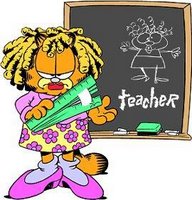Listening activities
1. Simon says
e.g. If you've got something green... put your hand up / stand on one leg / clap your hands/stamp your feet
2. Statues game
The children mime an activity to music and then stand still like statues when the music stops the last student to stop is out. ( Good for the 1st days' actitivities. Students can mime something they like. That's a way to know their likes)
3. Right or Wrong / True or False
Ask students to listen carefully. Explain you are going to tell them something. It might be right or wrong. If you're right they clap once if you're wrong theyclap twice.
e.g. Today's Monday?
Today's sunny?
This is Peter?
4. Colour Dictation
teacher gives a picture to each student. They have to listen to your instructions. You tell them what colour to use and what to colour.
5. Draw Dictation
Teacher describes a simple picture of a familiar scene with objects children know. Students listen and draw what you describe.
Afterwards you can choose 3/4 pictures the children have drwn and show them to the class. Ask students to spot the differennces.
Speaking Activities
- If your pupils cannot read yet they have to remember the word as a sound.
- If your pupils can read it is better if they first remember the sound of the word and then learn the spelling.
1. Finding pairs (pelmanism)
A memory game where children have to pick up two cards with the same picture or word. 8the cards are spread out face-down)
2. Shopping games
Children act the parts of shop assistants and customers in different kinds of shops to practise vocabulary.
e.g a pet shop. The shop assistant has got flashcards related to the theme and the customers have got money to go there are buy what they want,
3. Happy families (+/- Go fish)
Players in groups of three or four have to collet four cards from each other from the ame family or topic.
4. I spy...
It can be used with sounds / flashcards... You say I spy ...and students have to guess
e.g. i spy something beginning with the sound [sh]
5. Pass the ball
You need a tape recorder, a cd and a ball. Put on the music and the children keep passing the ball to the children next to them. When the music stops, the child with the ball has to answer a question.
Reading activities
- This is a big step because children have to understand the association between what they hear and what they read.
- learning to read in English is not as difficult if children can read in their own language.
1. Initial letter
Children recognise and collect the first letters of different words.
e.g. What letter does cat begin with?
2. Feel the letter
Children close their eyes and touch cut-out letter on a card. Find the "t" for tiger.
3. Clever parrot
The children have to repeat like a parrot. but they must be clever and only repeat teh word that's on the card the teacher is schowing.
